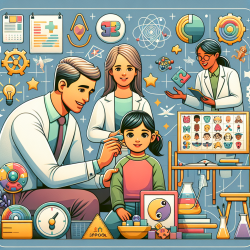Introduction
In today's fast-paced work environment, maintaining a culture of civility is crucial for organizational success and employee well-being. A recent study titled "Assessing workplace civility: Validity and 1-year test-retest reliability of a Japanese version of the CREW Civility Scale" provides valuable insights into measuring and enhancing workplace civility. This blog explores the key findings of the study and how practitioners, especially those in therapeutic roles, can leverage these insights to foster a more civil and supportive workplace.
Understanding the CREW Civility Scale
The CREW (Civility, Respect, and Engagement in the Workforce) Civility Scale is an eight-item measure designed to assess workplace civility norms. The Japanese version of this scale has been validated through a comprehensive study involving both longitudinal and cross-sectional analyses. The scale's reliability and validity make it a robust tool for evaluating civility across various occupational settings.
Key Findings of the Study
The study revealed several critical insights:
- The CREW Civility Scale demonstrated high internal consistency, with a Cronbach's alpha of 0.93, and acceptable test-retest reliability (ICC = 0.52).
- Civility scores were positively correlated with supervisor and co-worker support and work engagement, indicating that a civil environment enhances support and engagement.
- Conversely, civility scores were negatively correlated with incivility, workplace bullying, intention to leave, and psychological distress, highlighting the detrimental effects of an uncivil work environment.
- Demographic factors such as age, education level, and job role influenced civility perceptions, with younger, highly educated, and managerial employees reporting higher civility.
Implications for Practitioners
Practitioners, particularly those involved in online therapy services like TinyEYE, can utilize these findings to improve workplace civility. Here are some actionable steps:
- Implement Civility Training: Develop and conduct workshops focused on civility, respect, and engagement. Use the CREW Civility Scale to measure progress and identify areas for improvement.
- Foster Supportive Relationships: Encourage open communication and collaboration among team members to enhance supervisor and co-worker support.
- Address Incivility Promptly: Establish clear policies and procedures for addressing incivility and bullying. Provide support for affected employees and promote a culture of respect.
- Customize Interventions: Recognize that civility perceptions vary by demographic factors. Tailor interventions to address the unique needs of different employee groups.
Encouraging Further Research
While the study provides a solid foundation for understanding workplace civility, ongoing research is essential to adapt and refine interventions for diverse work environments. Practitioners are encouraged to explore additional studies and collaborate with researchers to develop innovative solutions for enhancing workplace civility.
Conclusion
Workplace civility is a cornerstone of a healthy organizational culture. By leveraging the insights from the Japanese version of the CREW Civility Scale, practitioners can implement effective strategies to foster a more civil and supportive work environment. This not only benefits individual employees but also enhances overall organizational performance.
To read the original research paper, please follow this link: Assessing workplace civility: Validity and 1-year test-retest reliability of a Japanese version of the CREW Civility Scale.










